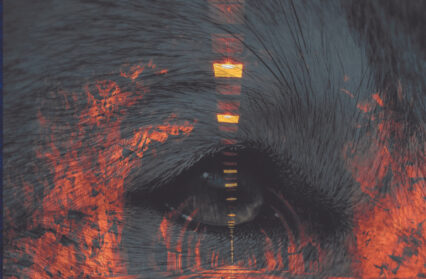Author Rachel Grosvenor explores the process of writing and reflection, pausing to take in the history of her home in Dolgellau.
It was on a bright April day that my husband and I rolled into Dolgellau for the first time. We hadn’t even intended to, passing quite by chance, and there, over a stone bridge, lay a scene that made us gasp at its beauty. We pulled over, and walked through the old streets, marvelling at the stone walls of the houses. We talked about what it might be like to live in Dolgellau, at the base of Cader Idris. Wonderful, we said, perusing the houses in the window of an estate agent. We popped in to say hello. Before we knew it, we were viewing a property.
I’ve always been a restless sort of person, someone who can’t imagine themselves in one place for too long. My husband and I have travelled the globe, living in New Zealand, France, and planning adventure after adventure. For a writer, that always seemed the way to live, to feed my stories with the sights and sounds of constantly changing imagery. But something strange happened when we stepped inside that house in Dolgellau, the one we had told each other we were only looking around for a ‘joke’. It reminded me of somewhere. The staircases climbing up and up into the high rooms, the house nestled in between two others, the whispers of history. It evoked the house of the protagonist from my novel The Finery, Professor Wendowleen Cripcot. It didn’t just remind me of my character’s house, it felt like home. We put in an offer, not expecting anything. And months later, we moved in.
Dolgellau is the perfect setting for a writer. If I didn’t know it then, I know it now. I haven’t spent the night on Cader Idris (the saying is that if you spend a night alone there, you either don’t wake up, or you wake up a poet or a madman), but I feel its presence. I’m not the only author inspired by North Wales, either. My favourite writer, Tolkien, saw Wales as ‘a place of wonder, a land where giants dragons dwelt.’* More modern fantasy writers, such as Philip Pullman, follow the tradition, building beautiful fantastical lands driven by the stunning visage of Cymru, and led by the wonder of Welsh mythology. He even describes some of his work as a ‘love letter to Wales.’** In my own writing, I tell of lands that don’t exist, but it would be a lie to say you cannot find a slice of Wales there. My characters’ journeys take place in worlds similar to my own.
Every morning, I wake the dog up, and we walk down the Mawddach trail. More people say hello to my dog than me (that’s okay, he is very good-looking), and while he trots beside me, I watch the clouds swirl around the hills and mountains beyond. There’s a magic to Wales that seeps into my writing. I have always believed that adventure lies over mountains, as though I am Frodo carrying the ring to Mordor. I feel the stories weaved through the stone and imagine the footsteps of the medieval women who made these streets the shape they are.
When we moved in, it was winter, and we had no heating or hot water for a month. My house is heavy with the history of the women who lived here before me, and I drew strength from them, those who had survived previous winters. I traced the frost that had dug deep into the initials and dates they had carved into the slate in my garden. Our garden. It’s hard not to be inspired in such a place.
So, as a writer and a traveller, it seems I have found my home at last. It’s amazing what can happen when you pull your car over on a whim.
Rachel Grosvenor is a writer from Birmingham, UK, with a PhD, MA and BA in Creative Writing. With a passion for telling fantastical tales, Rachel has written poetry and short stories for reviews and anthologies worldwide. When she’s not writing, she spends her time editing, coaching, and wondering what’s for elevenses.
The Finery (Fly on the Wall Press, £10.99, eBook £5.99) is available from 25th August 2023.











